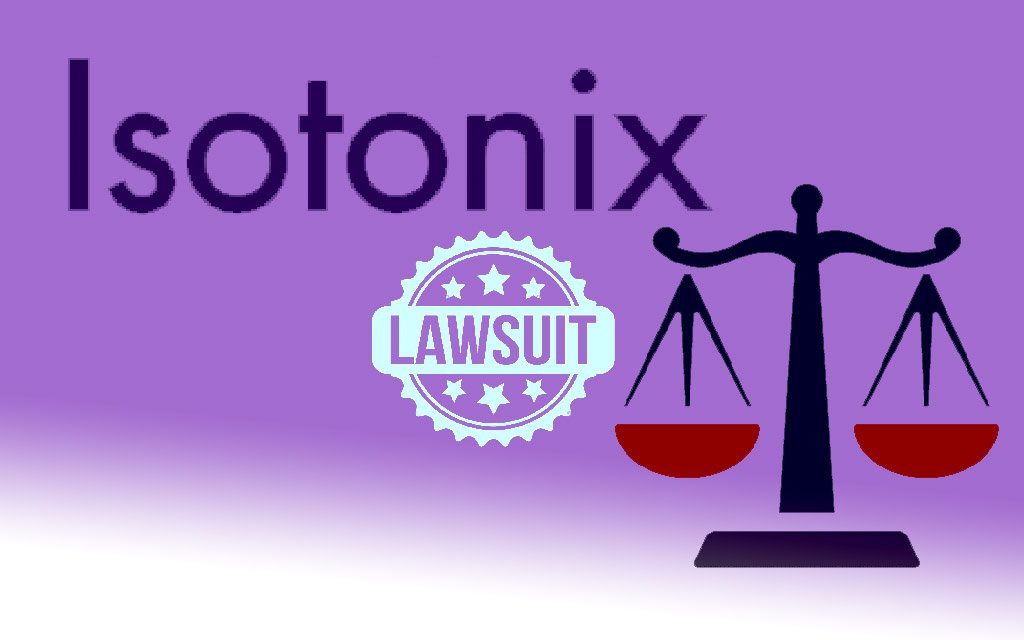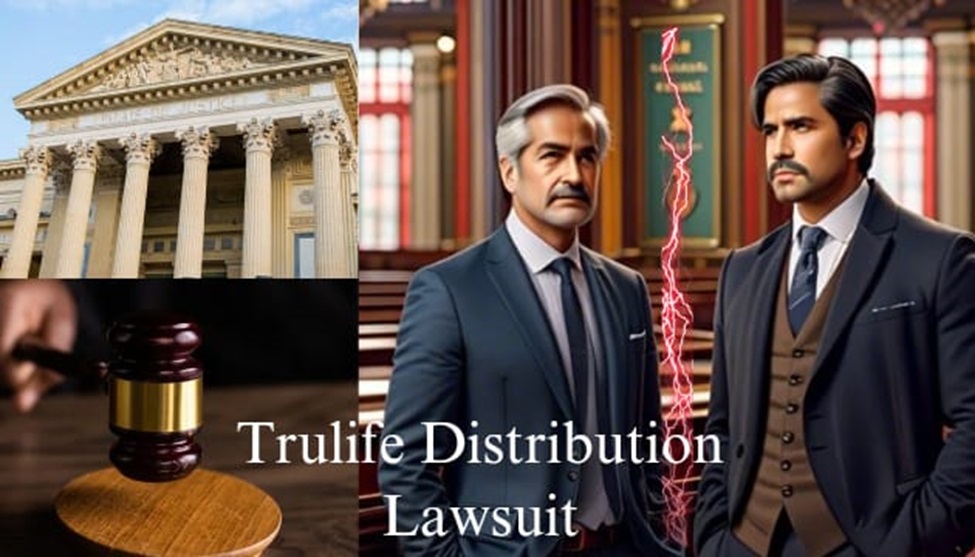Sonos has dominated the home audio market for years because of its excellent smart speakers and easy connection with contemporary gadgets. However, the business is currently dealing with a significant litigation that questions customer practices. According to the class action lawsuit, launched in partnership with Labaton, Sonos used deceptive business practices that eventually caused harm to its clients.
Customers have voiced concerns regarding software updates that reportedly reduced older Sonos devices’ functionality, compelling users to buy newer models. The company’s openness and dedication to providing long-term product support are called into doubt by this case. Many people closely monitor the case to see how it might affect Sonos and the larger tech sector.
Sonos Faces Legal Action
The lawsuit against Sonos has raised concerns about corporate ethics in the tech industry. Consumers who purchased Sonos products expected long-term functionality, but some now feel misled about their investments.
Sonos built its reputation on innovation and superior audio quality, making it a household name in smart home technology. However, recent claims suggest that the company may have misled its loyal customer base. The lawsuit accuses Sonos of intentionally rolling out software updates that hindered older devices, forcing consumers into unnecessary upgrades.
Many customers who invested in Sonos products expected their devices to last for years. Instead, they claim that software updates made their speakers incompatible with newer models, creating frustration and distrust. As a result, affected users have sought legal action, with Labaton leading the charge to hold Sonos accountable.
Many customers feel betrayed by these changes. Sonos products are known for their durability, yet some users argue that software updates rendered their devices obsolete. The legal action led by Labaton aims to seek justice for affected customers.
Allegations in the Sonos Class Action Lawsuit
This case focuses on several key claims made by affected consumers. The primary concerns include software updates allegedly reducing device performance, forced upgrades, and potential violations of consumer rights.
Read also: Raw Sugar Shampoo Lawsuit: Legal Claims and Consumer Concerns
Software Updates Degrading Performance
Consumers allege that Sonos deliberately pushed software updates that reduced the performance of older devices. Many users claim that speakers became slow, unresponsive, or incompatible with newer models once fully functional. This raised concerns that Sonos may have intentionally limited product longevity to drive new sales.
Forced Upgrade Strategy
The lawsuit argues that Sonos encouraged unnecessary product upgrades. Plaintiffs believe the company’s software updates were designed to make older models less effective, leaving customers with no choice but to purchase new devices. Many users claim they invested in Sonos systems expecting long-term use, only to find their devices phased out earlier than expected.
Consumer Rights Violations
Plaintiffs argue that Sonos violated consumer rights by failing to disclose the potential impact of software updates. Many customers purchased Sonos speakers with the expectation that they would remain fully functional. The lawsuit claims that Sonos did not adequately inform buyers about changes that could render their devices obsolete.
Sonos’ Response to the Lawsuit
Sonos has pushed back against the allegations, insisting that software updates are necessary for maintaining security and performance. The company argues that evolving technology sometimes requires modifications that might affect older models.
Sonos has denied all allegations. The company insists that software updates are designed to enhance functionality and improve user experience. Executives claim that technological advancements sometimes require modifications that may affect older devices.
Sonos maintains that customers were informed about software changes. They argue that compatibility issues result from evolving technology rather than intentional obsolescence. The company continues to support its product ecosystem while addressing concerns raised in the lawsuit.
Legal Implications of the Case
This lawsuit could redefine how tech companies handle product updates. Depending on the verdict, it may force brands to be more transparent about software modifications and their impact on product longevity.
Potential Consumer Compensation
If the lawsuit succeeds, affected consumers may receive financial compensation. Courts could order Sonos to reimburse users for affected devices or offer discounts on future purchases. The case may set a precedent for how companies handle software updates for long-term products.
Impact on Business Practices
The lawsuit challenges how tech companies manage product longevity. If Sonos loses, companies may face stricter regulations regarding software updates. Businesses might be required to provide more transparent disclosures about the long-term impact of updates on older devices.
Broader Industry Consequences
This legal battle extends beyond Sonos. Many tech companies implement software updates that affect device performance over time. If the lawsuit leads to stricter regulations, other brands may need to rethink their update policies.
Consumer Reaction and Market Impact
Public response to the lawsuit has been significant, with many consumers expressing frustration over Sonos’ business practices. Some have voiced concerns about whether they can trust tech companies to deliver long-lasting products.
Customer Trust and Brand Loyalty
Many Sonos customers feel frustrated and betrayed. Some have expressed their disappointment on social media, criticizing the company’s approach to product updates. Sonos may need to work harder to rebuild consumer trust if the lawsuit progresses.
Effect on Sonos Sales
Public perception plays a significant role in a brand’s success. If consumers lose confidence in Sonos, sales could decline. Some buyers may switch to competitors who offer better long-term support for their devices.
Increased Scrutiny on Tech Companies
This lawsuit may lead to increased scrutiny of tech companies’ software policies. Governments and consumer protection agencies may push for more transparent product life cycle policies. Consumers now demand greater clarity on how updates affect device usability.
Possible Outcomes of the Lawsuit
There are multiple potential results for this case, ranging from financial compensation for affected customers to a court-mandated policy change for Sonos. The final decision will impact both consumers and the tech industry at large.
Settlement or Compensation
Sonos may choose to settle the lawsuit and compensate affected customers to avoid prolonged legal battles. A settlement could involve financial reimbursement or product discounts. This approach would help Sonos manage public relations while addressing consumer concerns.
Policy Changes and Future Practices
If Sonos loses in court, the company may be required to update its policies. Companies could face new legal requirements, ensuring they inform consumers about software modifications.
Dismissal of the Case
Sonos’ legal team may seek dismissal of the case. If the court rules in their favor, the company will continue its business operations without changes. However, negative publicity from the lawsuit may still impact consumer confidence.
Lessons from the Sonos Class Action Lawsuit
This lawsuit serves as a critical moment for consumer rights and corporate accountability. It highlights the importance of clear communication between tech companies and their customers regarding software updates.
Transparency in Software Updates
Tech companies must provide transparent information about software updates. Consumers deserve to know if updates could impact product performance or usability. Clear disclosures build trust and prevent legal disputes.
Consumer Awareness and Advocacy
Consumers should research software policies before purchasing tech products. Understanding how updates affect device longevity helps buyers make informed decisions. Legal actions like this remind consumers to hold companies accountable for their claims.
Industry-Wide Changes
This lawsuit may influence future regulations on software updates. If courts rule in favor of consumers, tech companies may need to adjust their business models. Transparent communication and fair upgrade policies could become industry standards.
Conclusion: The Future of Sonos and Consumer Rights
The outcome of Labaton’s class action case against Sonos may have long-term effects for the business and the whole digital sector. If Sonos is held accountable, it might have to pay back impacted customers, alter its updating rules, and ensure its business methods are more transparent.
Today’s buyers of high-end technology need integrity and ongoing product support. As this case reminds us, companies need to be open and honest about how updates impact device operation. Other digital behemoths might come under further scrutiny for their software update tactics if Sonos loses this case.
Courts will determine if Sonos misled customers through software updates. The outcome may shape future policies on product longevity and transparency. Regardless of the verdict, this case highlights the importance of fair business practices. Consumers expect honesty and reliability when investing in premium products. Tech companies must balance innovation with consumer trust. The legal battle continues, and its impact could extend beyond Sonos to the entire industry.


